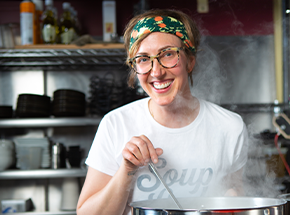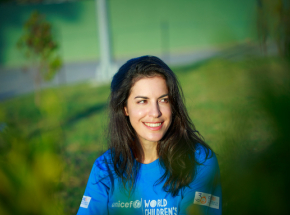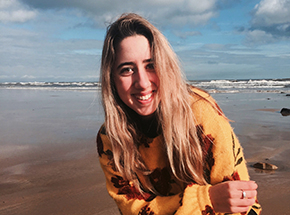- About AUP
- History of AUP
- Mission & Core Values
- Vision and Leadership
- AUP Recognition
- Alumni Success
- Campus Development
- Arts at AUP
- Policies & Guidelines
- Academics
- Undergraduate
- Graduate Programs
- MA in Diplomacy and International Law
- MA in Global Communications
- MSc in Human Rights and Data Science
- MA in International Affairs
- MA in International Affairs, Conflict Resolution, and Civil Society Development
- MSc in International Management
- MSc in Strategic Brand Management
- Find Your Thesis Advisor
- Previous Programs
- Cultural Program
- Faculty
- Summer School
- Research Centers
- The Center for Critical Democracy Studies
- Upcoming Events
- Research Projects
- Fellows’ Publications
- Publishing
- Curriculum
- Community
- Partnerships
- Visiting Scholars
- CCDS Highlights
- Atelier de Théorie Politique – Paris
- Critical Theory 101: Future Directions and New Challenges
- Martti Koskenniemi on “The Law of International Society: A Road not Taken”
- Academic Freedom Symposium
- Tocqueville Colloque 2023
- Violent Turns Conference
- Degenerations of Democracy
- DEMOS21 Inaugural Event
- What Demos for the 21st Century?
- The Paris Centennial Conference
- Justice Stephen Breyer
- Civic Jazz - The Launch of the Center
- Past Events
- FR
- The Center for Writers and Translators
- The George and Irina Schaeffer Center for the Study of Genocide, Human Rights and Conflict Prevention
- The Joy and Edward Frieman Environmental Science Center
- The Center for Media, Communication & Global Change
- The Center for Critical Democracy Studies
- Departments
- Academic Resources
- Academic Affairs
- Academic Calendar
- Academic Resource Center
- Library
- Registrar's Office
- Teaching and Learning Center
- Accessibility & Accommodation Services
- AI@AUP: A Campus-Level Initiative
- Quai D'Orsay Learning Commons
- Paris as Classroom
- ACE
- Admissions
- Student Life
- Campus
- Student Leadership & Involvement
- Paris
- Support Services
- Student Life Help Desk
- Student Accounting Services
- Student Immigration Services
- Student Grievance Procedure
- Diversity and Inclusion
- Health & Well-being
- Digital Student Handbook
- News
- Events
- AUP Giving
- Housing Offer for 2025-2026
- IT Services
- Alumni
- About AUP
- History of AUP
- Mission & Core Values
- Vision and Leadership
- AUP Recognition
- Alumni Success
- Campus Development
- Arts at AUP
- Policies & Guidelines
- Academics
- Undergraduate
- Graduate Programs
- MA in Diplomacy and International Law
- MA in Global Communications
- MSc in Human Rights and Data Science
- MA in International Affairs
- MA in International Affairs, Conflict Resolution, and Civil Society Development
- MSc in International Management
- MSc in Strategic Brand Management
- Find Your Thesis Advisor
- Previous Programs
- Cultural Program
- Faculty
- Summer School
- Research Centers
- The Center for Critical Democracy Studies
- Upcoming Events
- Research Projects
- Fellows’ Publications
- Publishing
- Curriculum
- Community
- Partnerships
- Visiting Scholars
- CCDS Highlights
- Atelier de Théorie Politique – Paris
- Critical Theory 101: Future Directions and New Challenges
- Martti Koskenniemi on “The Law of International Society: A Road not Taken”
- Academic Freedom Symposium
- Tocqueville Colloque 2023
- Violent Turns Conference
- Degenerations of Democracy
- DEMOS21 Inaugural Event
- What Demos for the 21st Century?
- The Paris Centennial Conference
- Justice Stephen Breyer
- Civic Jazz - The Launch of the Center
- Past Events
- FR
- The Center for Writers and Translators
- The George and Irina Schaeffer Center for the Study of Genocide, Human Rights and Conflict Prevention
- The Joy and Edward Frieman Environmental Science Center
- The Center for Media, Communication & Global Change
- The Center for Critical Democracy Studies
- Departments
- Academic Resources
- Academic Affairs
- Academic Calendar
- Academic Resource Center
- Library
- Registrar's Office
- Teaching and Learning Center
- Accessibility & Accommodation Services
- AI@AUP: A Campus-Level Initiative
- Quai D'Orsay Learning Commons
- Paris as Classroom
- ACE
- Admissions
- Student Life
- Campus
- Student Leadership & Involvement
- Paris
- Support Services
- Student Life Help Desk
- Student Accounting Services
- Student Immigration Services
- Student Grievance Procedure
- Diversity and Inclusion
- Health & Well-being
- Digital Student Handbook
- News
- Events
- AUP Giving
- Housing Offer for 2025-2026
- IT Services
- Alumni
Related Links
Faculty
Professor Dennis
Department of Comparative Literature and English
Professor Amanda Dennis
What made you choose comparative literature and creative writing as subjects?
I’d always had an interest in reading novels and writing, but I started out as a philosophy student. I wrote my dissertation on the philosopher Maurice Merleau-Ponty. He’s best known for the idea that the self, or the subject, is not some “thinking thing” divorced from the world, but rather the body itself and the way it interacts with its environment. My dissertation research brought me to Paris. I was lucky enough to be studying in an interdisciplinary department, so I could bridge easily into literary criticism. I became especially interested in modernism and in Samuel Beckett, who has also had an incredible influence on contemporary literature.
Was it the Beckett connection that introduced you to AUP?
I had certainly followed in Beckett’s footsteps in coming to Paris. I was studying on an exchange at the École normale supérieure, and something clicked between me and the city. I felt at ease here, and I loved the value that French culture attaches to the life of the mind. I discovered AUP through Dan Gunn, a fellow Beckett scholar. (Anglophone Beckett scholars in Paris just found each other like magnets.) I started working as an adjunct lecturer and helped Professor Gunn with archival research for the third volume of Beckett’s letters, which he was editing at the time. I loved teaching at AUP. The students were worldly, mature and thoughtful – and multilingual beyond belief! When I came back to Paris years later, I applied for the job I have now.
What made you decide to become a novelist?
After I’d filed my dissertation, I went to work as a postdoctoral fellow in Madrid. While I was there, I had this revelation: I’d been working on a novel all along, and I thought, if I’m ever going to finish this, I’ve got to do something drastic. I applied to the Iowa Writers’ Workshop. It was an incredible experience. I learned so much about what it takes to live a life where you do this strange thing every day: consecrate time to worlds that don’t exist. I’m grateful for and amazed by the things I learned in Iowa, which informed the revisions I later made to the novel.
How does the novel play out?
A friend once described Her Here as a missing girl story told from the point of view of the missing girl. I think this is a good description, but half the story is narrated by the searcher, a researcher, Elena, who has come to Paris to study the filmmaker, Chris Marker. Instead, she finds herself swept up in a mother-daughter story of great complexity, which moves her to piece together fragments from the journals of a young woman, Ella, who disappeared six years earlier in Thailand. As Elena moves deeper into the journals, she becomes obsessed with discovering what happened to Ella, even taking on characteristics of the missing girl. The book is interested in how much of others’ stories we can know and in how we make (and unmake) the narratives we live by.
What experience from your work as a novelist do you bring to your teaching at AUP?
It’s important to have a sense of how one’s readers will experience things. In a creative writing class, there is the opportunity to have 15 writers react to what you have written. You’ll learn which parts move people, and you’ll use that to develop muscle memory; you discover where the vital parts of your writing are. One of the invigorating things about teaching for me is the sense of experimentation and playfulness that students have. When students take a prompt and run with it, sometimes it works and sometimes it doesn’t. But keeping that creative imagination alive is an important part of my creative work and my classes. I aim to stimulate and deepen creativity. Last spring, I also taught about modernism and fragmentation, thinking about the changing relationships that modernist writers – like Virginia Woolf, Samuel Beckett, Franz Kafka and Walter Benjamin – have to the body.
Her Here isn’t your only book...
I’ve also published an academic book, Beckett and Embodiment: Body, Space, Agency, with Edinburgh University Press. Originally, this was supposed to be a revised version of my dissertation, but the work evolved to be more about how phenomenology and ecology are connected. It still draws heavily on Merleau-Ponty and Beckett, but in the context of how the body interacts with the environment. Also important to my academic work is questioning ideas about agency. Is agency something that is strictly human, or can it also be ascribed to the environment? The pandemic also had an impact on how I approached the subject, because it made me rethink the relationship between the human and the nonhuman. For example, we can do incredible things with technology, yet a virus can still bring economies to their knees. Some of these reflections made their way into the book’s introduction.
What other projects have you been working on recently?
One of the events I did recently was a reading and discussion with contemporary writers and poets who have been influenced by Beckett. We were asking what Beckett’s legacy has been for contemporary literature. I also co-organized a conference at Trinity College Dublin, “Beckett and the Anthropocene.” The virtual event had participants from India, Argentina, Australia, Mexico, Ireland, Iran and the US. The conference developed from a symposium at AUP in 2019 titled “Beckett, Phenomenology and Ecology.” I also work on various literary projects, including the First Pages Prize, an international writing contest for aspiring novelists, and the literary journal Paris Lit Up. I’m also working on a new novel.
Related
-

A Recipe for Living: Author and Chef Caroline Wright ’05
Alumna
Read MoreA Recipe for Living: Author and Chef Caroline Wright ’05
Alumna
Caroline Wright, a chef and author, finds opportunities for creativity, nourishing food, and community—even in a cancer diagnosis.
-

Maria Lujan Tubio ’03
Alumna
Read MoreMaria Lujan Tubio ’03
Alumna
The amount of emphasis my professors placed on student–teacher contact was very special.
-
Alex
Student
Read MoreAlex
Student
AUP has been the perfect way to finish my undergraduate studies.


